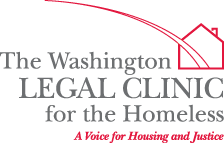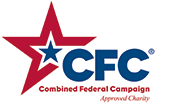As part of the FY 2014 Budget Support Act, DC Mayor Vincent C. Gray has proposed significant changes to the Homeless Services Reform Act (HSRA), the law governing homeless services in DC. Not only will the proposed changes do little to resolve the crisis that the Legal Clinic, the Washington Post, and other news outlets have written about in recent months, but if enacted, they may cause significant harm, particularly to families trying to access homeless services.
We were extremely disappointed to learn that the Mayor and his Department of Human Services (DHS) have chosen to respond to the crisis of increasing family homelessness and the long list of legal violations of the right to shelter this past winter with a grab bag of punitive measures that will curtail the rights of DC residents and create more barriers for children and families trying to access life-saving shelter. None of these changes was vetted by the Interagency Council on Homelessness nor by any other community process, and the costs, both human and fiscal, of administering these changes are unacceptable.
First, the amendments would allow the Department of Human Services (DHS) to place a family in shelter or housing “provisionally” for 14 days (or longer at DHS’ sole discretion) while the agency determines eligibility and priority, assesses the family, or identifies a referral other than shelter. Provisionally placed families would lose a host of rights that families in shelter currently have, such as the right to a 15 day notice of termination or transfer, the right to continue receiving shelter services pending an appeal of a termination, and all rights granted to residents of temporary shelters– including the right to receive case management services. Provisionally placed families could be terminated from shelter or housing, even in hypothermic conditions, with only 24 hours’ notice and without due process of law.
Adding insult to injury, families placed “provisionally” would also be subject to new termination grounds not applicable to anyone else, including failure to “participate in” or “cooperate with” the assessment and referral process. The same intake workers at the Family Resource Center, who have been the subjects of dozens of complaints about unlawful and disrespectful treatment of families this winter, could now terminate a family based on the subjective conclusion that the family is being “uncooperative,” a term that is not defined anywhere in the HSRA.
Second, the amendments may coerce families in shelter into accepting a short-term housing subsidy even if the program or the particular unit is not appropriate for their family. Under current law a provider can terminate a shelter resident for turning down two offers of “appropriate” housing. The proposed language would make an offer of two different units through the Rapid Rehousing program per se appropriate. In other words, a family could not turn down two units because they are unaffordable to them, they are not wheelchair accessible, they have egregious housing code violations, they are not the right size for their family, or for any other reason—without facing the possibility of being terminated from shelter as a penalty.
The amendments also would eliminate several important rights that tenants of supportive housing programs currently enjoy. Providers could create arbitrary time limits and terminate participants once they reach these time limits, no matter what the reason. The amended law would also permit DHS to terminate Housing First and other supportive housing tenants simply because they are hospitalized or otherwise institutionalized for 60 days or more. And, by redefining the term “provider’s premises” to include a supportive housing tenant’s private apartment (even in a scattered site program), the new law would allow DHS to terminate tenants from their housing without prior notice or the right to a hearing first when the tenant commits certain acts in his or her private apartment unit.
Finally, the proposed amendments could revive mandatory escrow for emergency shelter residents, a program that was rejected by the workgroup that drafted the HSRA of 2005 because of its high administrative costs, negative impact on staff and resident relationships, and the inability of many shelter residents to contribute to escrow and still meet the basic needs of their children.
We now look to the DC Council to take action to ensure that these harmful measures are not enacted into law. Stay tuned to this blog to learn more about the potential impact of each of the above amendments and the recommendations WLCH and the Fair Budget Coalition have for resolving the family homelessness crisis.






0 Visitor Comments
Trackbacks/Pingbacks